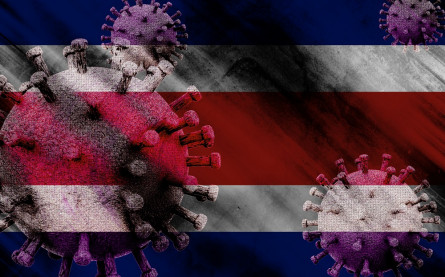Costa Rica: Short-term social assistance scheme, equalling 3% of GDP
In their paper, Koen Voorend (Institute of Social Research, University of Costa Rica) and Daniel Alvarado (independent researcher, San José) analyse the main legislative and institutional responses in Costa Rica between January and the end of September 2020.
Costa Rica was expected to fare better in the face of Covid-19 pandemic than most countries in the Global South, because of its longstanding history of a strong, universal social security regime that provides quality services for most of its inhabitants. But Costa Rica’s social policy regime has come under pressure since the 1980’s debt crisis with cuts in public social expenditure. “Furthermore, the effects of the international financial crisis of 2008, but especially mismanagement and exponential increases in operating costs, left the CCSS [Caja Costarricense del Seguro Social - the institution in charge of the country’s healthcare and pension system] with a worrisomely deteriorated financial situation […] ever since”, the authors write.
Nevertheless, the Costa Rican government introduced extensive social policy measures to combat the side effects of the pandemic. The main measures pertained to pensions, the healthcare sector, the labour market and social assistance.
A pension reform created the possibility of freeing accumulated pensions earlier so that people could use the money to cover their cost of living. This measure reduced hardship in the short run, but future pensions of those who took advantage of the early payout will be lower as a result.
In health care, the CCSS reduced the minimum contribution base by 75% for employers and by 25% for independent workers and voluntary insured persons, making it easier for the latter group to keep up contributing to the public health care system and thus receiving its services. This measure was supposed to end after three months in May, but was extended to the end of 2020. The costs of the reduced contribution base were estimated to amount to 10 Million Euro per month.
On the labour market, a reform allowed employers to reduce the working hours (and consequently, the salaries) of their employees by up to 50% if the company’s profits were reduced due to the Covid-19 pandemic. This measure was meant to avoid bankruptcy of companies as well as massive layoffs of workers in the private sector, but at the same time it increased the pressure on the Costa Rican government to implement some support system for the thousands of families whose incomes were reduced along with their working hours.
As a result, the cash transfer programme Bono Proteger was implemented, providing beneficiaries and their families with a temporary basic income (initially three months – April, May and June, then extended for another three months). The government allocated 1.4 billion Euros to this programme, equivalent to 3% of the GDP. Until the beginning of September 2020, about 1 Million people applied for the basic income, 680000 applications were approved.
The costs for the measures to respond to the social and economic effects of the pandemic in Costa Rica are huge and could only be covered by spending cuts in other fields and with international loans (e.g. from the Inter-American Development Bank) and a 504 million US$ emergency assistance by the International Monetary Fund.
In the beginning of the pandemic there was a high degree of agreement and consensus among the government and the Congress to speed up the adoption of measures, particularly with regard to the issue of supporting the private sector, the provisions regarding pensions and the approval of the Protection Plan. From May 2020 onwards, due to the high costs of the programmes and the rising public financial deficits, negotiations became much more complicated. The second period of the basic income programme was only approved only two months of debates.
Due to time restrictions, Koen Voorend’s and Daniel Alvarado’s report only covers the developments until the end of September 2020. Since then Costa Rica's financial crisis has become severe so that the government has announced tax reforms and cuts in public spending ans it has entered negotiations with the IMF about a 1.75 billion US-Dollar loan. The austerity measures as well as the involvement of the IMF have spured mass protests. The future of Costa Rican social policy is thus more uncertain than ever.
Read Koen Voorend’s and Daniel Alvarado’s full report, including the appendix listing all social policy developments in response to the pandemic: Costa Rica’s Social Policy Response to Covid-19: Strengthening Universalism During the Pandemic?
See the other parts of the series: CRC 1342 Covid-19 Social Policy Response Series











